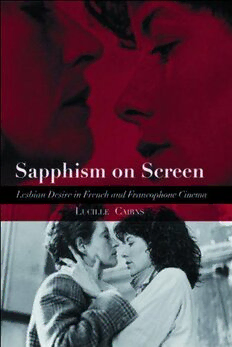
Sapphism on Screen: Lesbian Desire in French and Francophone Cinema PDF
233 Pages·2006·0.938 MB·English
Most books are stored in the elastic cloud where traffic is expensive. For this reason, we have a limit on daily download.
Preview Sapphism on Screen: Lesbian Desire in French and Francophone Cinema
Description:
This book sets out to investigate and theorise mediations of lesbian desire in a substantial corpus of films (spanning the period 1936-2002) by male and female directors working in France and also in French-speaking parts of Belgium, Canada, Switzerland and Africa. The corpus is unique in never before having been assembled, and represents a valuable tool not just for researchers but also for university teachers creating courses both on lesbianism in film and on sexuality in French cinema. A fair number of the 89 texts treated are mainstream films which have achieved high critical acclaim and/or high viewing figures: to cite just a few examples, Henri-Georges Clouzot's Quai des orfèvres (1947), Louis Malle's Milou en mai (1989), Claude Chabrol's La Cérémonie (1995), André Téchiné's Les Voleurs (1995), and François Ozon's Huit femmes (2001). As such, they have contributed to hegemonic constructions of and debate on (female) homosexuality, in a century wherein sexed/ gendered identity, including sexual orientation, has become a preeminent factor in the constitution of subjectivity. While such constructions and debate have a French-language specificity, and have been produced in distinct socio-political and cultural contexts, this study also engages in analytical comparisons with relevant anglophone films and their own distinct discursive contexts.
See more
The list of books you might like
Most books are stored in the elastic cloud where traffic is expensive. For this reason, we have a limit on daily download.
